Red-bellied Parrot: Bird Species Profile
Updated on 05/26/24
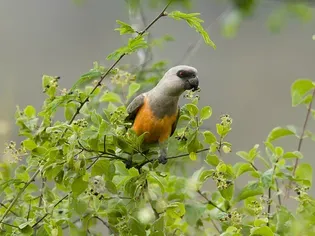
Explore the Enchanting Red-bellied Parrot: A Comprehensive Bird Species Profile
Embark on an ornithological journey as we delve into the captivating world of the Red-bellied Parrot (Poicephalus rufiventris). From their mesmerizing plumage to their playful personalities, these remarkable parrots have captivated bird enthusiasts worldwide. This comprehensive species profile will provide a thorough understanding of their biology, behavior, and care requirements, empowering you to embrace the wonders of these avian gems.
Taxonomy and Distribution
The Red-bellied Parrot belongs to the genus Poicephalus, comprising a diverse group of African parrots known for their intelligence and resilience. Their natural habitat extends across the sub-Saharan region, spanning countries like Angola, Botswana, Namibia, South Africa, and Zimbabwe. They primarily inhabit woodlands, savannas, and semi-arid grasslands, exhibiting a preference for areas with an abundance of acacia trees.
Physical Characteristics
Red-bellied Parrots are medium-sized parrots, measuring approximately 26-28 cm (10-11 in) in length and weighing around 120-150 g (4-5 oz). Their physical appearance is characterized by:
* Striking Plumage: They sport a vibrant emerald green plumage, with a crimson-red belly that gives them their distinctive name.
* контрастное лицо: Their faces contrast beautifully with their green plumage, featuring a black mask around the eyes and a whitish or pale gray forehead.
* Powerful Beak: Their beaks are stout and black, adapted for cracking nuts and seeds.
* Long, Tapered Tail: They have long, tapered tails with central feathers that are elongated, lending an elegant silhouette to their flight.
Behavioral Traits
Red-bellied Parrots are known for their playful and inquisitive nature. They exhibit a wide range of behaviors, including:
* Social Dynamics: They live in flocks or pairs, often forming long-lasting bonds.
* Vocalization: They possess a variety of calls, from screeching and chattering to melodic whistling.
* Intelligence: They are highly intelligent birds with an ability to learn tricks and solve problems.
* Agility: They are skilled climbers and flyers, navigating their surroundings with ease.
Diet and Nutrition
In their natural habitat, Red-bellied Parrots primarily feed on a diet of fruits, nuts, seeds, and insects. They have strong beaks that allow them to crack tough nuts and seeds. Captive birds should be provided with a balanced diet that includes:
* Commercial Parrot Pellets: A high-quality pellet diet provides a complete nutritional base.
* Fresh Fruits and Vegetables: Offer a variety of fruits and vegetables, such as apples, bananas, carrots, and leafy greens.
* Nuts and Seeds: Supplement their diet with nuts and seeds in moderation, such as almonds, peanuts, and sunflower seeds.
* Treats: Occasional treats, such as millet sprays or fruit cups, can enrich their diet and provide mental stimulation.
Care and Housing
Providing proper care and housing is essential for the well-being of Red-bellied Parrots. Here are some key considerations:
* Enclosure: They require a spacious aviary or cage that allows for ample room for flight and exercise.
* Toys and Enrichment: Offer a variety of toys and enrichment activities to keep them mentally and physically stimulated.
* Bathing: Provide regular baths to keep their feathers clean and healthy.
* Temperature and Humidity: Red-bellied Parrots prefer warm temperatures ranging from 70-80°F (21-27°C) and moderate humidity.
* Veterinary Care: Regular veterinary checkups are crucial to ensure their health and prevent potential illnesses.
Conservation Status
The Red-bellied Parrot is currently classified as "Least Concern" by the International Union for Conservation of Nature (IUCN). However, localized population declines have been reported due to habitat loss, trapping for the pet trade, and agricultural practices. Conservation efforts focus on habitat protection, captive breeding programs, and education to raise awareness about their importance.
Conclusion
The Red-bellied Parrot is a captivating and enchanting bird species that brings joy to bird enthusiasts worldwide. Their vibrant plumage, playful personalities, and intelligence make them exceptional companions. By understanding their biology, behavior, and care requirements, you can provide these remarkable parrots with the best possible environment to thrive and flourish. Whether you encounter them in the wild or welcome them into your home, appreciate the beauty and wonder that these feathered gems bring to our world.
Explore More Pets

Small Bird Breeds
Gloster Canary: Bird Species Profile

Small Bird Breeds
Java Finch: Bird Species Profile

Small Bird Breeds
Zebra Finch (Chestnut-Eared Finch): Bird Species Profile
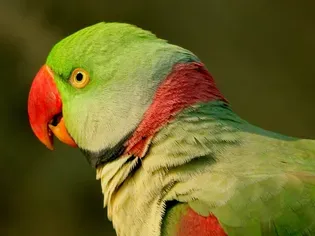
Small Bird Breeds
Alexandrine Parakeet: Species Characteristics & Care
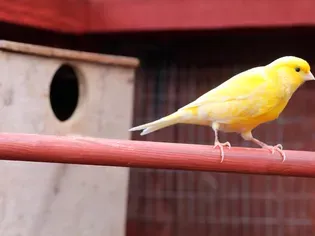
Small Bird Breeds
Canary: Bird Species Profile
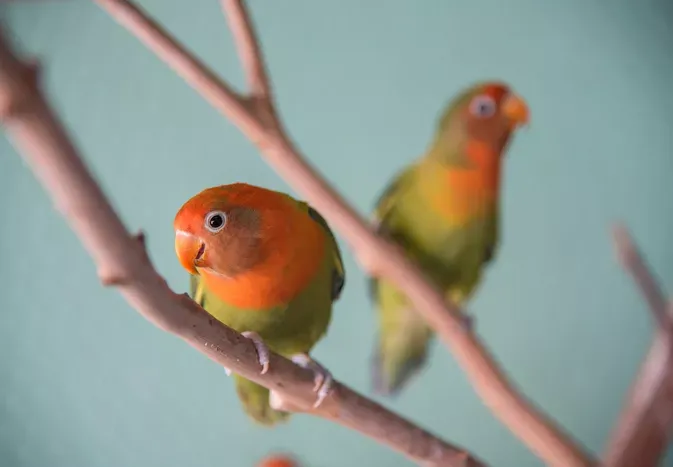
Small Bird Breeds
Lovebird (Pocket Parrot) Species Profile
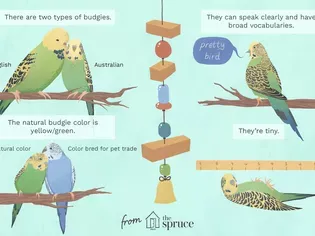
Small Bird Breeds
A Guide to Pet Budgie Birds
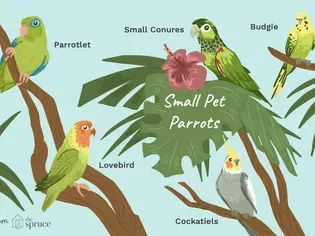
Small Bird Breeds
Types of Small Parrots
